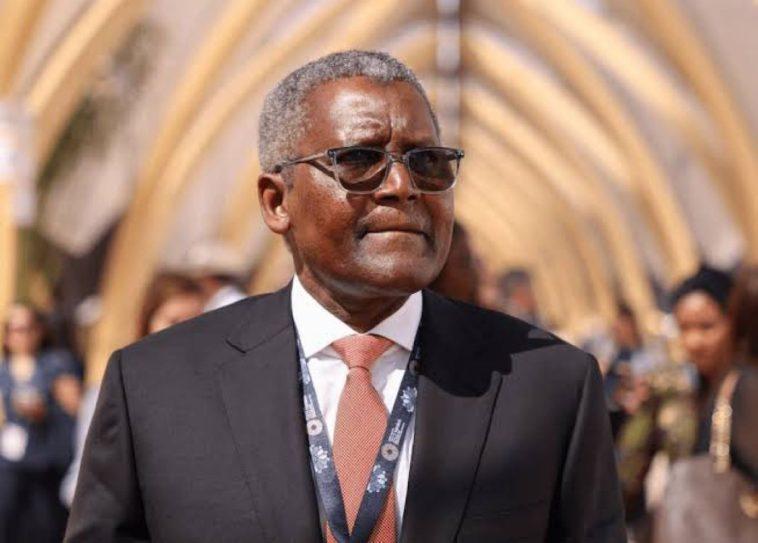Top 4 Richest Men In Nigeria According To Forbes (2025)
Nigeria is the giant of Africa, not only in population but increasingly in business leadership. According to Forbes' 2025 data, Nigeria’s wealthiest are Aliko Dangote, Mike Adenuga, Abdulsamad Rabiu, and Femi Otedola. These men don’t just hold bank balances—they shape industries, influence markets, and lead with vision. Let’s dive deeper.
1. Aliko Dangote – $23.9 Billion (Age 67)
Source of Wealth: Cement, sugar, oil & gas, manufacturing
Why He Tops the List
Aliko Dangote remains Africa’s richest man for the 14th straight year, as confirmed by Forbes. His net worth skyrocketed from about $13.9 billion to $23.9 billion—driven mostly by the valuation of his mega refinery near Lagos, which began operations in early 2024.
Empire Snapshot
The Dangote Group started from humble beginnings but expanded into manufacturing (cement, sugar, flour, salt, seasoning, pasta) and consumer goods. But it’s the Dangote Refinery—a $19–$20 billion single-train facility with a capacity of 650,000 barrels per day—that has truly transformed his empire.
Why It Matters
This refinery has made Dangote not just an industrialist, but a national energy hero, reducing Nigeria’s fuel imports and positioning the country as a potential exporter. His financial leap reflects bold risk-taking, ambition, and investment in infrastructure that matters.
2. Mike Adenuga – $6.8 Billion (Age 71)
Source of Wealth: Telecoms (Globacom), oil (Conoil), diversified holdings
His Claim to Fame
Mike Adenuga has built a telecom and oil powerhouse. His Globacom is Nigeria’s second-largest mobile operator, serving over 60 million subscribers and backing major infrastructure like the Glo-1 submarine cable. He also owns Conoil Producing, one of Nigeria’s top indigenous oil firms, pumping thousands of barrels per day.
Wealth in Context
Forbes lists his net worth at $6.8 billion, consistent with his long-standing presence among Africa’s richest.
What He Represents
Adenuga is Nigeria's original entrepreneur: tech-forward, oil-savvy, and diversified. His business model offers lessons in vertical integration and resilience in volatile markets.
3. Abdulsamad Rabiu – $5.1 Billion (Age 64)
Source of Wealth: Cement, sugar, consumer goods, infrastructure
Building BUA’s Legacy
Abdulsamad Rabiu founded BUA Group, consolidating assets like BUA Cement (Nigeria’s second-largest cement maker), BUA Foods, and other real estate and infrastructure businesses.
His net worth stands at $5.1 billion, placing him among Africa’s top-tier billionaires and ranking him as the third-richest in Nigeria.
Why His Story Resonates
Rabiu represents generational progression, taking his father’s trading business and transforming it into an industrial force. His investments have helped lower Nigeria’s dependency on cement imports and expand domestic manufacturing.
4. Femi Otedola – $1.5 Billion (Age 62)
Source of Wealth: Energy, power generation, finance
Power Moves
Femi Otedola made his wealth first through commodities and oil, including ownership of Forte Oil. Today, he chairs Geregu Power Plc, a listed power generation company whose shares surged nearly 40%, boosting his fortune to about $1.5 billion.
He also holds major stakes in First Bank of Nigeria (FBN) and other ventures in shipping, real estate, and energy under his Zenon Petroleum & Gas brand.
Why He's Noteworthy
Otedola illustrates a key shift: moving wealth into power infrastructure and financial services, not just oil. His diversification into critical services positions him as a modern industrialist.
Insights from Nigeria’s Top Billionaires
1. Industrial Diversity to Build Resilience
All four men built empires through different sectors—cement, telecoms, power, food—showcasing how economic resilience comes from diversification.
2. Bold Investment in Infrastructure Pays Off
From Dangote’s massive refinery to Otedola’s power sector bets, infrastructure investments create long-term value—especially in nations with critical needs.
3. Home-Grown Solutions First
Rather than relying on imports, these billionaires have built local industries: refineries, cement plants, telecom towers, and power grids. That’s economic sovereignty in action.
4. Staying Private Can Be Strategic
With privately held businesses or majority control, they enjoy long-term strategy, nimble decision-making, and less pressure from public markets.
5. Stewardship, Not Just Wealth
These individuals are investing in the future of Nigeria—be it energy independence, industrialization, or employment—showing how business leadership and nation-building overlap.
Conclusion: Nigeria’s Billionaire Blueprint
-
Aliko Dangote – Cement mogul turned energy pioneer with a $23.9 billion net worth and Africa’s richest man.
-
Mike Adenuga – Telecom and oil titan with $6.8 billion, a backbone of Nigeria’s connectivity and energy.
-
Abdulsamad Rabiu – Industrialist with $5.1 billion, expanding manufacturing and food production.
-
Femi Otedola – Energy sector innovator with $1.5 billion, modernizing Nigeria’s power and finance foundation.
Their combined assets—over $37 billion—reflect not just personal wealth but collective progress. Nigeria’s richest aren’t simply beneficiaries of resource wealth; they are architects building industries, infrastructure, and futures.
Would you like this turned into a downloadable eBook, a podcast script, or formatted for a Nigerian business forum? Just say the word!



